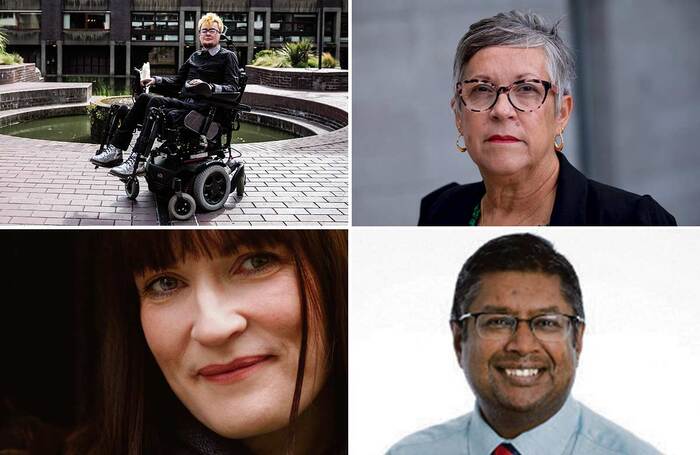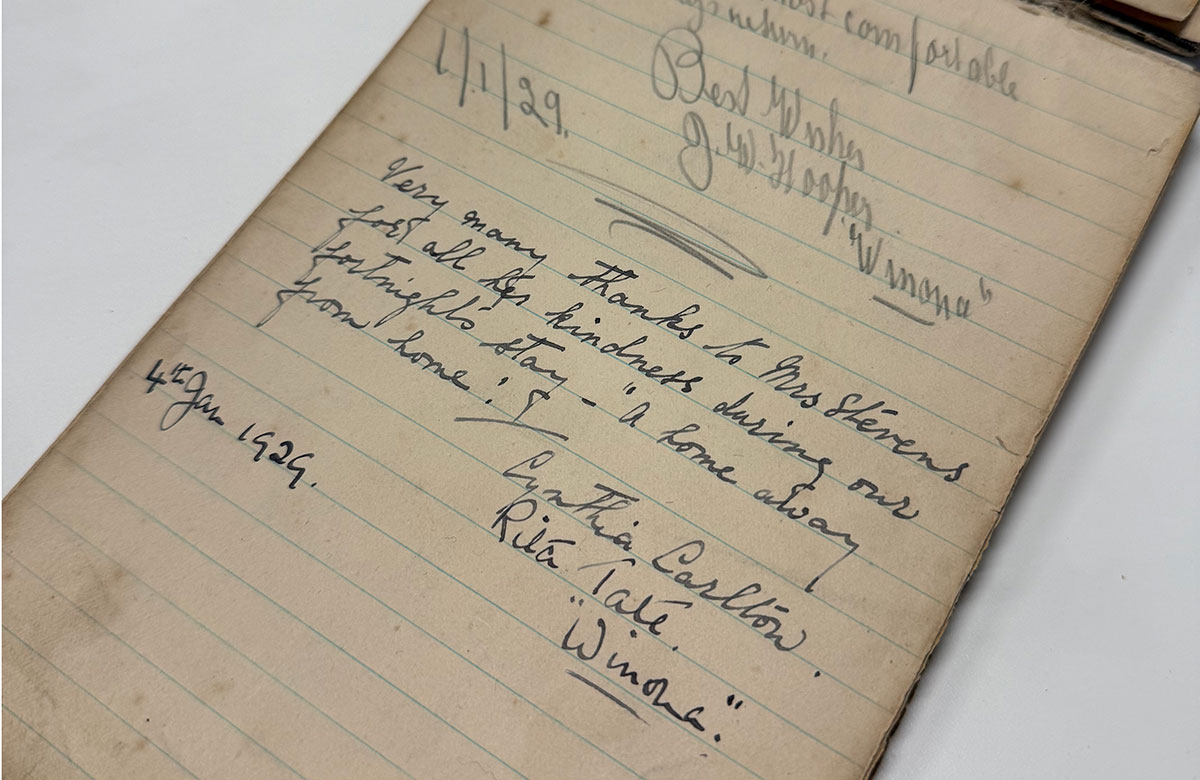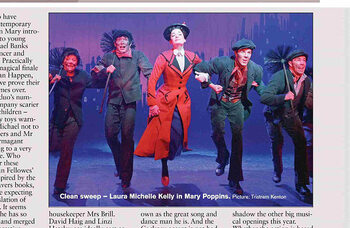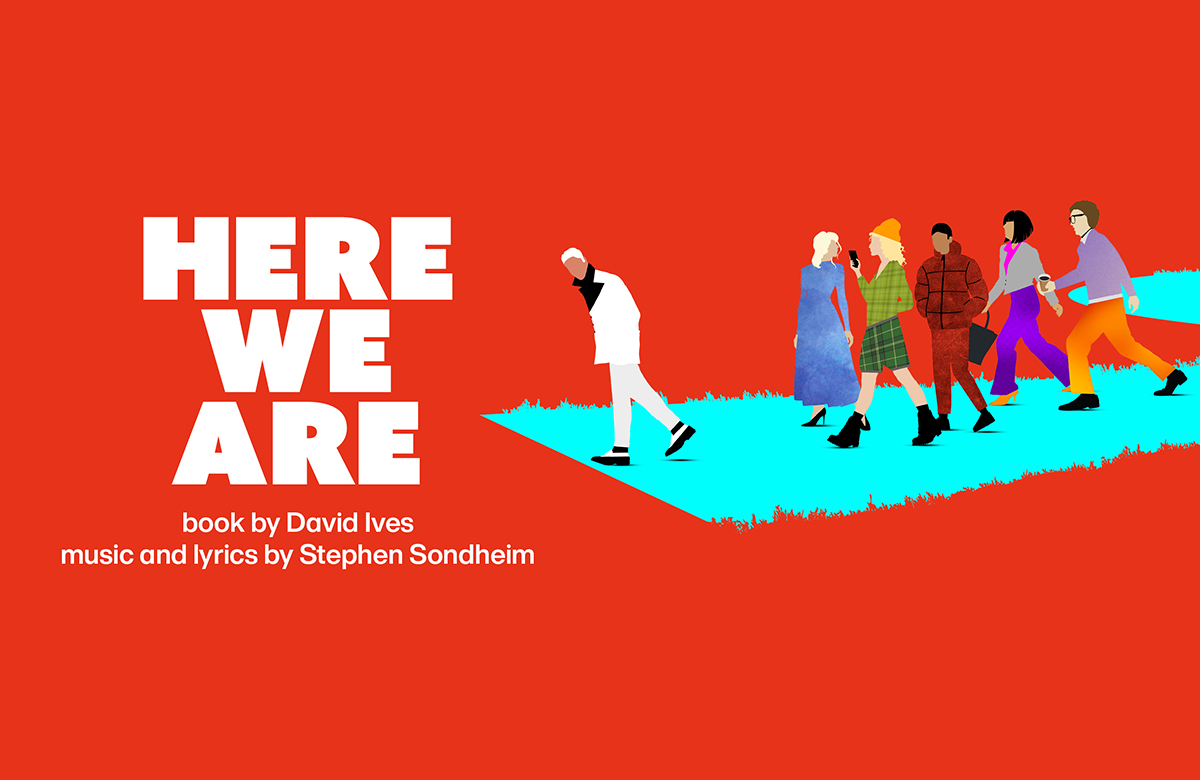Women and disabled people face ageist barriers to theatre, figures warn
Age restricted opportunities are "locking" disabled people and women out of theatre, industry figures have warned, arguing that ageism is still a "very real problem" in the sector.
The comments come after London’s Royal Court removed the age limit on its Plays from ur notes app playwriting competition, following widespread criticism that the restriction was "ageist".
Jamie Hale, who is the founder and artistic director of CRIPtic Arts – which makes work by and for deaf and disabled creatives – praised the Royal Court for removing the restriction, saying that opportunities with age limits were discriminatory towards disabled artists.
"Disabled people are often only able to start their careers later than others, or to create work more slowly. When opportunities for people early in their careers – often ones that come with extensive development support – are age restricted, this locks many disabled people out of the very opportunities designed to help people get started," Hale said.
"It would be easy to define ‘early career’ based on previous work, years working, opportunities, or output instead of creating an arbitrary age bar, which then excludes many disabled people."
Continues...
Online campaign noentry_uk (the campaign styles its name in lower case), which challenges age-barred opportunities in the arts and is run by writer and artist Joanna Walsh, said: "Theatre seems to have special problems as participation relies on mobility and constant availability, which can be difficult for anyone who has primary care duties, particularly those with young families.
"These people are mainly women, and the UK average age for first motherhood is 29. Women are doubly discriminated against in theatre because, as in film and TV, there’s a perception that protagonists should be young and ‘beautiful’."
Walsh continued that fewer plays were written about older people, and older women particularly, creating a "vicious cycle" that there were fewer parts, arguing audiences were missing out on "so many stories".
"The Royal Court’s decision to lift the age limit from its commission was particularly important as it perpetuated a stereotype that technology (mobile phones) are exclusively used by young people," Walsh added.
"Any age limit on any arts opportunity should be carefully researched. If there really is a provable shortage of candidates of a certain age, and the organisation is happy to show figures to back this up, that’s fine, but more often youth is lazily equated with innovation, or it’s assumed that older people don’t need the same kind of support, which is very often not the case."
The Writers’ Guild of Great Britain’s deputy general secretary Lesley Gannon welcomed the removal of the restriction on the Royal Court playwriting competition, stating: "Creativity isn’t age restricted, and new and exciting writers can ‘emerge’ at any age."
Gannon added: "We know from our members that ageism across the creative industries is a very real problem, which is why [we have launched] a major new survey that seeks to shine a light on how age and ageing impacts on writers’ careers.”
Equality and diversity organiser at trade union Equity, Ian Manborde, cited research from the US-based Geena Davis Institute and the UK’s Centre for Better Ageing that demonstrated the entertainment industry "routinely discriminates on the basis of age and gender", adding that the data "supports a long-standing concern of the union [that there were] diminishing opportunities to gain work on the part of older women members".
"Equity seeks an open playing field for work for all members based on the experience and suitability. The union works constructively with the industry to overcome bias and stereotypes in portrayal, and restrictions in getting work, based on age," Manborde added.
Meanwhile, BECTU head Philippa Childs said there must be opportunities for people of all ages to take up careers in theatre "whether at the start of their working life or later on as a career change".
She added: “The sector faces a chronic skills shortage and we need a diverse workforce to ensure we have the best talent working in our theatres."
Actor and writer Nicky Clark, who founded a campaign against ageism in the industry called Acting Your Age, said that ageism in theatre was "a much bigger problem than many people realise".
Clark said she was often excluded from writing competitions because of age limits, but argued that the lack of older women writing scripts meant a lack of roles for older women on screen and stage.
She added: "Ultimately, I don’t think women are supposed to mention any of this. We’re supposed to absorb this discrimination along with all the others that keep women from bringing the change we need to see and my philosophy is: if we can’t name it, we can’t change it – and it needs to change."
Production News
Recommended for you
Production News
Recommended for you
Most Read
Across The Stage this weekYour subscription helps ensure our journalism can continue
Invest in The Stage today with a subscription starting at just £5.99












